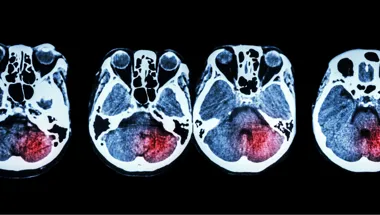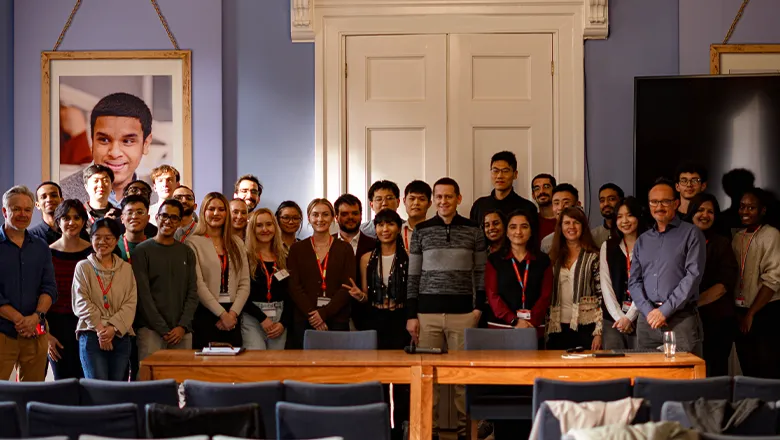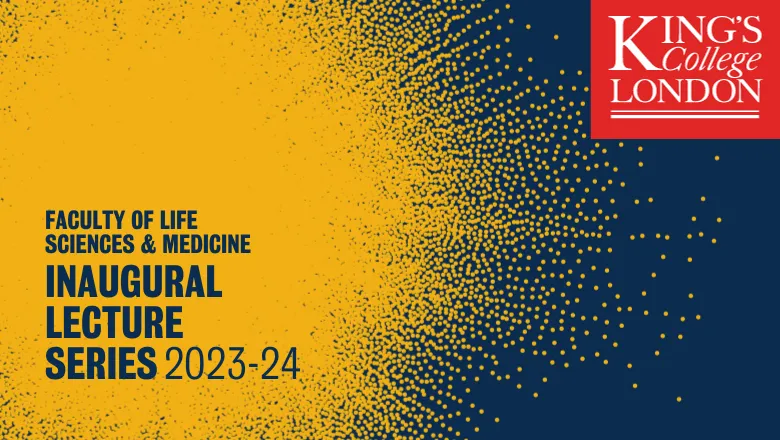
Professor Vasa Curcin
Professor of Health Informatics
- Joint Head of Department, Population Health Sciences
Research interests
- Biomedical and life sciences
Biography
About
Dr Vasa Curcin is a Professor in Health Informatics at King’s College London and leads the Digital Health Group, focusing on reproducibility solutions based on data provenance, embedding clinical trials into routine practice, decision support systems as means of implementing Learning Health Systems in practice, and machine learning methods for detecting depression and anxiety disorders from social network behaviours.
Vasa completed his PhD at Imperial College London on semantics of scientific workflow systems. While working as a Bioinformatics Product Manager at InforSense Ltd, the application of his thesis to large real-world patient databases resulted in one of the earliest workflow-based phenotyping tools that has been used in both academic and industrial settings. He was a Farr Future Leader, is the King's lead for Health Data Research UK network’s Phenomics and Clinical Trial Informatics themes. He is a co-director of the DRIVE-Health Centre for Doctoral Training in Data-Driven Health.
Teaching
| 4CCS1DBT - Database Technologies |
Research

Distributed Artificial Intelligence
Understanding AI in social and economic contexts where an intelligent entity may be interacting with other entities

CONSULT
Wellness sensors to support patient decisions in managing their healthcare
Project status: Ongoing

Ageing Research at King's (ARK)
Cross faculty consortium addressing ageing and healthy longevity.

Stroke Research Group
We are a multidisciplinary group (epidemiologists, stroke physicians, GPs, social scientists, statisticians, health informaticians and health economists) focused on stroke and with a wider interest in vascular long-term conditions and analytics.

Digital Health
Digital Health Research Group is a multidisciplinary group of informaticians, clinicians, psychologists and computer scientists, researching the role of data and knowledge in medical research and practice.

Improving the lives of stroke survivors with data
We aim to improve the lives of stroke survivors through a programme of stakeholder engagement, data collection, analysis and modelling, and use in practice.
Project status: Ongoing

Health Inequalities, Societies and Systems
Central to our research is understanding and tackling the systemic and intersecting drivers of disparities in health over the life course such as racism, gender, crime, precarious livelihoods, environmental pollution, and inaccessible health care. We work collaboratively across the School of Life Course and Population Sciences to strengthen the theoretical aspects of population health research.

KingsCAT: Capture and Analysis Tool for Social Media Research at King’s College London
KingsCAT is an instance of the open source 4CAT: Capture and Analysis Toolkit set up to support interdisciplinary and collaborative social media research.
Project status: Ongoing
News
AI tackles huge problem of antimicrobial resistance in intensive care
Artificial intelligence (AI) can provide same-day assessments of antimicrobial resistance for patients in intensive care – critical to preventing...

New Nobel Prize winner comes to King's to speak with students
Dr John Jumper, one of the winners of the 2024 Nobel Prize for Chemistry, came to King’s College London the day after the announcement to talk to students.

King's EPSRC Centre for Doctoral Training in Data-Driven Health partners with online banking start-up
Two new projects at the EPSRC Centre for Doctoral Training in Data-Driven Health (DRIVE-Health) at King’s College London will help harness healthcare data for...

King's Centre for Doctoral Training in Data-Driven Health awarded multi-million EPSRC funding
The Engineering & Physical Sciences Research Council (EPSRC) has awarded £7.9 million to King’s Centre for Doctoral Training (CDT) in Data-Driven Health...

Patient-level factors predominantly influence women's uptake of GP health checks
Non-uptake of health checks amongst women in ethnically diverse South London are more likely to result from patient level rather than GP practice level factors

King's College London joins ELIXIR-UK
By joining the intergovernmental organisation King’s will be more meaningfully involved in discussions around access to bioinformatics resources

Interdisciplinary King's team win Best Demo for CONSULT healthcare project
An interdisciplinary team from King’s, led by academic staff from the Department of Informatics, has won Best Demo at the 6th International Conference on...

Events

Inaugural Lecture: Professor Vasa Curcin
Inspiring talks with some of our brightest minds
Please note: this event has passed.
Features
Professor Wendy Hall and Professor Vasa Curcin: What makes a good work-life balance?
Professor Wendy Hall, Deputy Head of the Department of Nutrition & Dietetics, and Professor Vasa Curcin, Joint Head of Department, Population Health Sciences,...

Spotlight
Where does data come from?
The origin, or 'provenance' of data is important to gaining trust in policies and processes that are data driven.

Research

Distributed Artificial Intelligence
Understanding AI in social and economic contexts where an intelligent entity may be interacting with other entities

CONSULT
Wellness sensors to support patient decisions in managing their healthcare
Project status: Ongoing

Ageing Research at King's (ARK)
Cross faculty consortium addressing ageing and healthy longevity.

Stroke Research Group
We are a multidisciplinary group (epidemiologists, stroke physicians, GPs, social scientists, statisticians, health informaticians and health economists) focused on stroke and with a wider interest in vascular long-term conditions and analytics.

Digital Health
Digital Health Research Group is a multidisciplinary group of informaticians, clinicians, psychologists and computer scientists, researching the role of data and knowledge in medical research and practice.

Improving the lives of stroke survivors with data
We aim to improve the lives of stroke survivors through a programme of stakeholder engagement, data collection, analysis and modelling, and use in practice.
Project status: Ongoing

Health Inequalities, Societies and Systems
Central to our research is understanding and tackling the systemic and intersecting drivers of disparities in health over the life course such as racism, gender, crime, precarious livelihoods, environmental pollution, and inaccessible health care. We work collaboratively across the School of Life Course and Population Sciences to strengthen the theoretical aspects of population health research.

KingsCAT: Capture and Analysis Tool for Social Media Research at King’s College London
KingsCAT is an instance of the open source 4CAT: Capture and Analysis Toolkit set up to support interdisciplinary and collaborative social media research.
Project status: Ongoing
News
AI tackles huge problem of antimicrobial resistance in intensive care
Artificial intelligence (AI) can provide same-day assessments of antimicrobial resistance for patients in intensive care – critical to preventing...

New Nobel Prize winner comes to King's to speak with students
Dr John Jumper, one of the winners of the 2024 Nobel Prize for Chemistry, came to King’s College London the day after the announcement to talk to students.

King's EPSRC Centre for Doctoral Training in Data-Driven Health partners with online banking start-up
Two new projects at the EPSRC Centre for Doctoral Training in Data-Driven Health (DRIVE-Health) at King’s College London will help harness healthcare data for...

King's Centre for Doctoral Training in Data-Driven Health awarded multi-million EPSRC funding
The Engineering & Physical Sciences Research Council (EPSRC) has awarded £7.9 million to King’s Centre for Doctoral Training (CDT) in Data-Driven Health...

Patient-level factors predominantly influence women's uptake of GP health checks
Non-uptake of health checks amongst women in ethnically diverse South London are more likely to result from patient level rather than GP practice level factors

King's College London joins ELIXIR-UK
By joining the intergovernmental organisation King’s will be more meaningfully involved in discussions around access to bioinformatics resources

Interdisciplinary King's team win Best Demo for CONSULT healthcare project
An interdisciplinary team from King’s, led by academic staff from the Department of Informatics, has won Best Demo at the 6th International Conference on...

Events

Inaugural Lecture: Professor Vasa Curcin
Inspiring talks with some of our brightest minds
Please note: this event has passed.
Features
Professor Wendy Hall and Professor Vasa Curcin: What makes a good work-life balance?
Professor Wendy Hall, Deputy Head of the Department of Nutrition & Dietetics, and Professor Vasa Curcin, Joint Head of Department, Population Health Sciences,...

Spotlight
Where does data come from?
The origin, or 'provenance' of data is important to gaining trust in policies and processes that are data driven.

